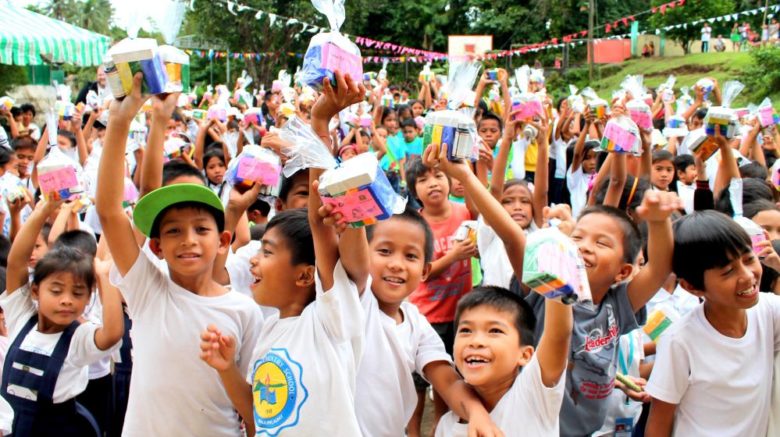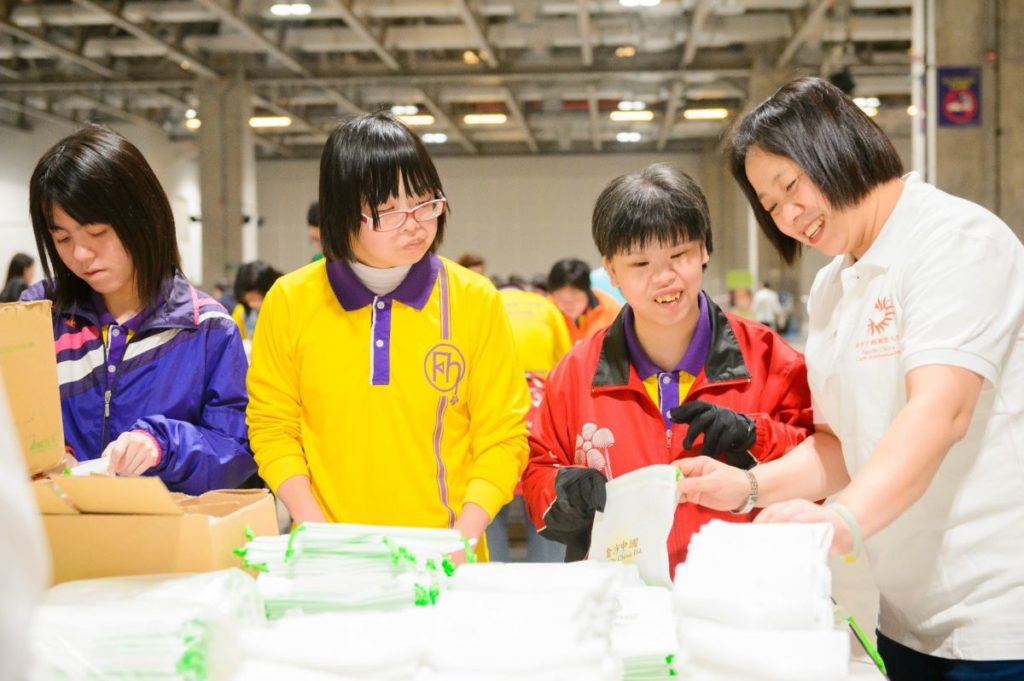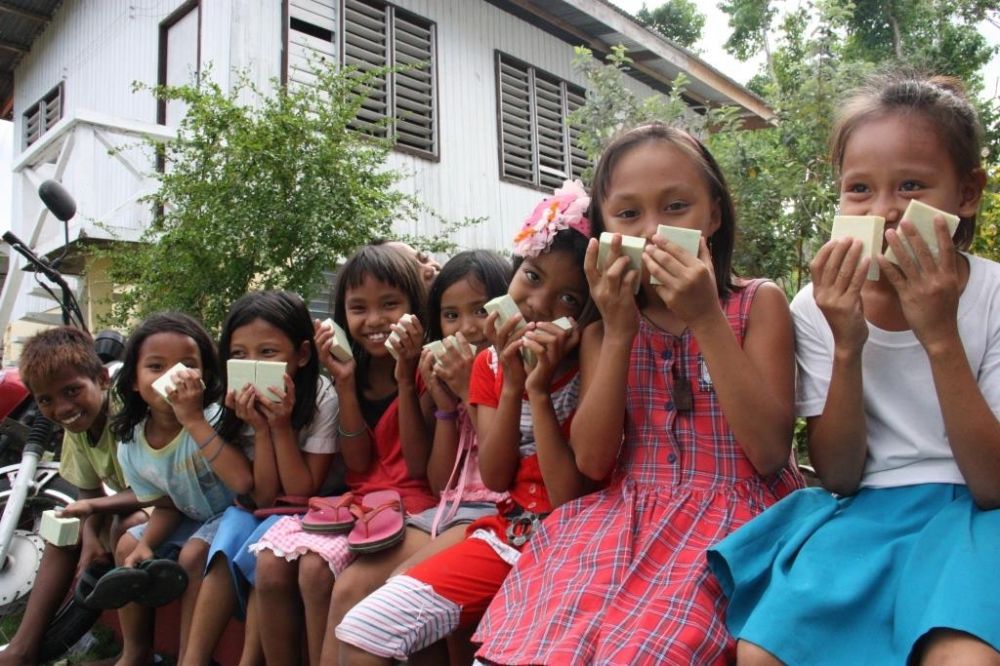“Hygiene related illnesses claim the lives of almost 6,000 kids under the age of five every day; that’s more than malaria, AIDS and tuberculosis combined. Interestingly, the way to prevent those deaths is not a vaccine, it’s not even clean water, but just a bar of soap.”
This is the way the global hygiene revolution begins — not with a bang, but a bar of soap.
In 2009, Shawn Seipler was spending 150 nights a year in hotel rooms with his job as a vice president for a tech company. One day he asked the front desk what happened to the soap after guests check out. It gets thrown out every night, of course.
Seipler learned then that more than 2 million bars of soap were thrown away annually in the United States. “I had to figure out how to recycle this soap and repurpose it for a good cause,” explains Seipler.
At the same time, global health figures showed that the leading causes of death amongst children were hygiene related illnesses – deaths and illnesses preventable with the right hygiene education and simple access to soap. “With this discovery,” says Seipler, “Clean the World and the global hygiene revolution was born.”
Two-fold Mission
As a social enterprise, Clean the World has a two-fold mission: to collect and recycle soap and hygiene products discarded daily by the hospitality industry and then distributing this to impoverished people globally to prevent millions of hygiene-related deaths each year. “We are proud to say the bars of soap we produce today are the same caliber as any bar of soap you purchase commercially,” says Sam Stephens, chief executive of Clean the World Foundation (the NGO side of the enterprise), “but in our case, once the soap is recycled, instead of selling it commercially we want to fulfill our social responsibility in saving lives.”
Since its inception, Clean the World has diverted 14.8 million pounds of waste from landfills and distributed over 40 million bars of soap in over 115 countries, which has helped lead to a 35% reduction in the number of deaths for children under the age of 5. Still, hygiene related illnesses today, Stephens says, “claim the lives of almost 6,000 kids under the age of five every day; that’s more than malaria, AIDS and tuberculosis combined. Interestingly, the way to prevent those deaths is not a vaccine, it’s not even clean water, but just a bar of soap.”
Emergency Relief
Emergency relief is an important part of the work of Clean the World. Any time there is a typhoon or an earthquake, one of the biggest issues faced by people is hygiene related illnesses, with access to local supplies of hygiene getting cut off. “Part of our commitment is to get the hygiene supplies to the most affected and most at risk,” says Stephens. Their team was on the ground within 48 hours after the Nepal earthquake in 2015, and last year, after Hurricane Matthew hit, they provided over half a million bars of soap to Haiti, Bahamas and the east coast of the U.S.
Behaviour Change and Sustainability
“There are communities and developing countries around the world where people are literally dying… dying from cholera because they are not washing their hands,” Stephens says. People may have access to soap, but are simply not using it properly. As such, the bulk of what Clean the World focuses on today is ongoing hygiene education. Rather than simply dropping items off in needy communities and leaving, as so many aid organizations do, Clean the World focuses on “saving lives and doing it in such a way that it can sustain and create an impact that has a lifespan long after our interaction with that community is over.”
“We take an approach that values the needs of the community and that understands the reality that is on the ground. And we make a commitment to serve the community for a year or two so we can instill proper handwashing training, which is a behavior that carries on for the rest of the lives of those recipients.” Stephens adds that, “in so doing, we see great decreases in hygiene related illnesses and we see great increases in school attendance and employability.”
Saving lives is just the beginning and Clean the World intends to make an enduring impact. “We are also building up a micro enterprise through micro lending at the local level,” says Stephens. What they want to do is to start up local enterprises that employ people at the local level to make their own soap and sell it, to create incomes and also create a local source of soap that is available even after Clean the World has exited that community. Stephens explains that what they want is “after that year or two after we serve the population and we make that significant impact, then that impact can sustain itself.”
Pick Hotels that Recycle
Clean the World began in north America, but it has picked up significant traction in many other parts of the world, coming to Asia around three and a half years ago. Gyneth Tan, managing director of Clean the World Asia, further highlights, “We are doing CSR, we are going out to do hygiene education, including education about recycling, about being sustainable, and even about picking a hotel that actually recycles.”
The success of their model with hotels is demonstrated not only by the reduction in the waste stream with their partner hotels, but also by being able to show the hotels the impact they have helped them achieve. They are even able to go back to the housekeeping staff directly at some of the hotels who may also be from some of these communities or may be immigrants themselves. Challenges “When you are an innovative organization working with an idea that is so fresh, it can be challenging,” says Stephens. Indeed, running a social enterprise has its own peculiar challenges and Seipler advises that for “non-profit entrepreneurs, it is important to run your company like you would any other type of business.”
Far from holding them back, Clean the World is driven by its mission to save lives. “There are still millions of bars of soap being thrown away and still thousands of kids that are dying because they don’t have it. So long as that is the case, we are going to still keep pushing forward,” says Seipler.
Upcoming Initiatives
In June, Clean the World launched the veteran’s hygiene kit which includes special amenities to take care of homeless veterans in the United States. There is also a children’s kit and a woman’s kit coming out soon and Clean the World is also looking at additional programs to further their sustainability development goals.
Get Involved
- If you are travelling, encourage the hotels you stay in to participate in the program – there is no reason they should throw away soap that could otherwise be used to save lives
- Visit Clean the World online, follow them on social media and see the difference they are making
- If you are interested in volunteering, you are invited to get in touch and plug in to select communities and see some of the work they are doing
- Make a financial contribution. Just USD1 can provide soap for one kid for a month – it is so simple and can have such a profound impact.
Repost from SparkRaise



